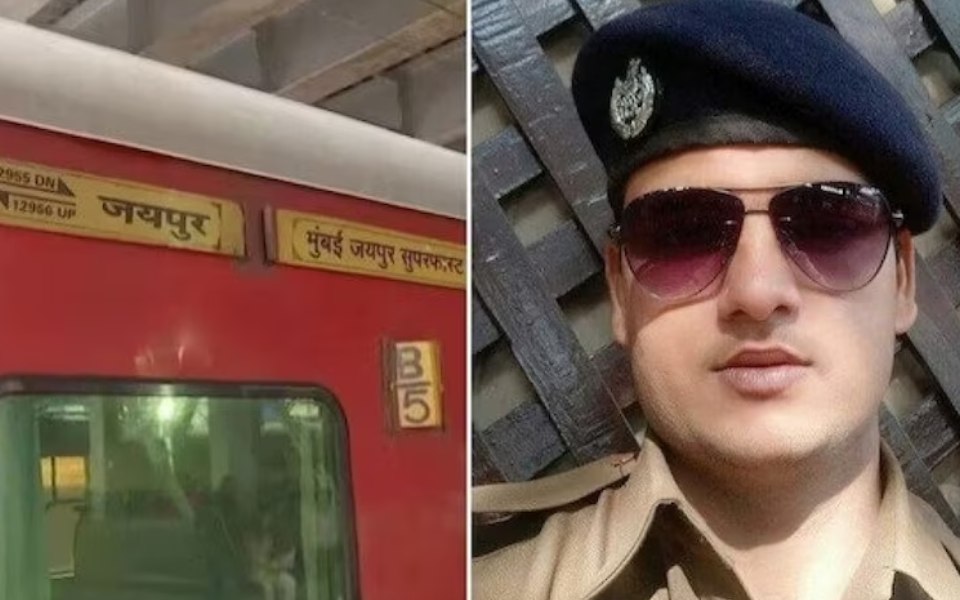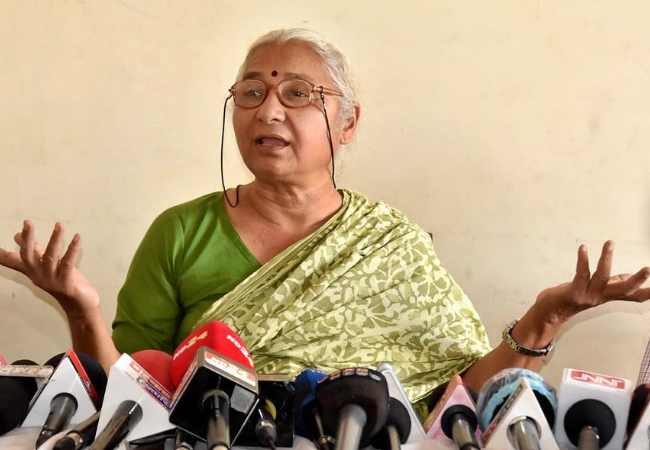Mumbai, Aug 10: The railway police has sought permission from the court to perform brain mapping, polygraph and narco analysis test on Railway Protection Force constable Chetan Singh who is accused of shooting dead four persons, including his senior colleague, on board a Jaipur-Mumbai train on July 31.
Seeking permission for brain mapping, polygraph and narco analysis test, the Government Railway Police (GRP) told the magistrate court in Borivali that the matter was very serious and a thorough investigation was needed.
Singh's laywers Amit Mishra and Azad Gupta opposed the GRP's application on Thursday and said why investigation was not done earlier despite the accused being in custody for the past 11 days.
The effect of such tests on the accused should also be considered after taking advice of experts, Mishra and Gupta told court.
The court, after hearing both the sides, adjourned the matter and called for the say of the accused.
Apart from murder and kidnapping, the GRP has added Indian Penal Code section 153A (promoting enmity between different groups on grounds of religion) in the case against Singh, who is in police custody till August 11.
Singh allegedly shot dead four persons, including three passengers, in two coaches of the Jaipur-Mumbai Express near Palghar railway station on July 31.
He was nabbed with his weapon while trying to flee.
As per police, Singh shot dead RPF Assistant Sub-Inspector Tika Ram Meena and another passenger in B5 coach with his automatic weapon. He then shot dead another passenger in a pantry car and one more passenger in S6 coach next to the pantry car some time after 5am that day.
Let the Truth be known. If you read VB and like VB, please be a VB Supporter and Help us deliver the Truth to one and all.
New Delhi (PTI): A court here on Saturday acquitted social activist Medha Patkar in a criminal defamation case filed by Delhi L-G V K Saxena, saying the prosecution failed to prove that she made the alleged defamatory statements during a television programme in 2006.
The complaint was filed by Saxena, then president of the National Council for Civil Liberties, alleging that Patkar had defamed him during a TV programme.
Judicial Magistrate First Class Raghav Sharma, while hearing the case, said the complainant had failed to produce legally admissible evidence to establish that Patkar had made the impugned statements.
According to the complaint, Patkar had allegedly claimed during the programme that Saxena and his NGO had received civil contracts connected with the Sardar Sarovar project, an allegation Saxena denied and termed defamatory.
The court said the material on record showed that Patkar was not a panellist on the programme and that only a short pre-recorded video clip of her was played during the telecast.
"It is important to note that neither the reporter who actually recorded the audio-video nor any person who had seen the accused making the impugned statements has been examined as a witness.
"It is also crucial to note that the clip played in the programme/show appears to be only a very short clipping from an interview or press conference of the accused," the judge said.
The court noted that to establish anything in the case, it is essential to produce the entire video and audio of the press conference before the court about the alleged defamatory remarks given by the accused.
"Without examining the entire clip or footage of that interview, no determination can be made regarding the speech of the accused," the judge said.
The court said that Saxena failed to place on record the original video footage or the recording device that allegedly captured the defamatory remarks, and as a result, the statements attributed to Patkar could not be established.
"The only document capable of proving that the accused made the impugned statements would be the original electronic device in which such statements were recorded," the court said, adding that neither the device nor a valid secondary copy was placed on record.
The case was filed before a court in Ahmedabad. It was transferred to Delhi in 2010 on the orders of the Supreme Court.
In the absence of legally admissible evidence proving publication of defamatory statements by Patkar, the court acquitted her of the charge under IPC Section 500 (defamation).
In August 2025, in a separate defamation case filed by VK Saxena, the Supreme Court confirmed Patkar's conviction ordered by the trial court and set aside a penalty of Rs 1 lakh imposed on her in the case.



_vb_37.jpeg)
_vb_52.jpeg)
_vb_76.jpeg)